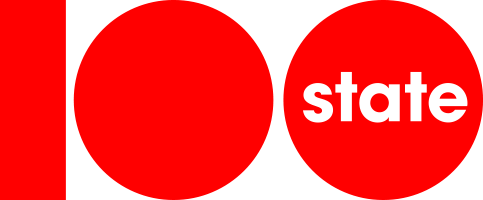100stories: I’m the Robin Hood of social media strategy

By Jess Bahr, as told to Violet Jinqi Wang
I love when Facebook changes its algorithm.
Figuring out how algorithms work and how to exploit them is what I do for a living.
Ok, exploit might be a strong word. But I see it as a scientific process that involves observing, asking questions, proposing hypotheses and testing for results.
Take Facebook’s organic reach for example. What does it respond to? Does it respond to audiences’ engagement, or how fast they engage, or if they click on the link in the post? If so, how can I incentivize and encourage those actions?
It’s the process of collecting all these little potential ideas that may or may not work, and testing them out. If they work, let’s exploit it or leverage it as much as we can. If they don’t, ask the next question.
The internet is like the Wild, Wild West — I try to be a pioneer and stay ahead of trends so I can create my own map, instead of following others’ instructions. Most algorithm changes first happen without a big announcement. By the time you read those articles about “10 trends on social media”, or “New algorithm change on Facebook/Linkedin/Twitter,” it’s already too late.
I fell into social media unexpectedly.
When I was 22, I co-founded a company called Undergrad Success with my college friends. We noticed that we always called each other up for internship advice. We built a website to offer internship resources and interview tips to students. At one point, I took over our social media campaign and realized that I was a natural at it. When I sold the company at age 26, I began my career in social media growth marketing.
I’ve been in love with social media ever since. I love how I can personalize the experience and tailor it to my needs. If you hate ads, you can block them. If you think you are receiving too much negative and depressing content? Block the people who give you negative energy. I have even used a personal feed blocker so that I only see ads, when I want to see what other marketers are doing.
Data is my friend. I am an analytical person and I always look for the most efficient way to achieve the best result. I discovered through experimentation that photos presented as short looping videos on Facebook were more effective before that was common practice.
My ultimate goal with every campaign is to create experiences that people share with their friends without noticing they are being advertised to.
One major highlight in my social media career came when a client tried to send me some reference materials for a new campaign. He sent me a case study for a campaign that I had run. I was like, “Hey, I am familiar with that campaign, I ran that.” Seeing my work presented by a platform as an example and guideline is a super affirming experience for me as a pioneer.
Throughout my career, I have been fortunate enough to work with companies with large audiences like the Economist, Time Inc., and the BBC. Because of their size, they are often invited to do alpha/beta testing with different social media platforms. I had amazing access to a massive amount of data to test out some of my theories.
I’ve enjoyed my time with major agencies, but what I enjoy the most is working with small businesses and startups. I like to think of myself as the Robin Hood of big data — taking all the theories we tested in big companies and turning them into social media practices for small businesses. Even if a startup only has a minimal budget for social, it can still leverage the same tactics to maximize its online competitiveness as a larger company. Working with startups and small businesses feels more rewarding because I get to have a more substantial impact on the company.
Most people are not pioneers, but copiers and followers. They will copy someone else’s formula and hope to duplicate their success. I see some online marketers become successful out of luck — they’re caught up in a new trend. Once that trend dies down, they shamelessly sell their online tutorial courses about “How to become rich online”, when the reality is that they get rich by selling these tutorials. They sell ideas that aren’t working anymore and encourage their followers to do the same. It’s 100 percent multi-level marketing and zero percent originality. I call that the real exploitation of the online community.
But the good news is, every time the algorithm changes again, the fakers get filtered out, and the real pioneers are already three steps ahead of them.
So bring on the algorithm changes, Facebook.
Previous Post
100stories: There’s no such thing as a “life decision”
Next Post
100stories: I’m a blockchain skeptic, but I’m all in
Recent Posts
- Founders Circle Ignite: The Ultimate Entrepreneurial Bootcamp at 100state February 9, 2025
- 100state: Madison’s Entrepreneurs hub to Ignite Dreams February 9, 2025
- Top 5 Benefits of Coworking for Startups in Madison November 28, 2024
- Founder’s Circle Ignite Program: Empowering Madison Entrepreneurs with 100state November 27, 2024
- The Benefits of Coworking for Mental Health and Productivity November 23, 2024
Categories
- 100arts (11)
- 100stories (11)
- AI (1)
- Blockchain (1)
- Community (30)
- coworking (4)
- entrepreneur (9)
- Events (11)
- Freelancers (8)
- Member of the Month (23)
- Membership (23)
- Nonprofit (7)
- Social Marketing (3)
- Startups (16)
- Uncategorized (79)
- Working Remote (8)
